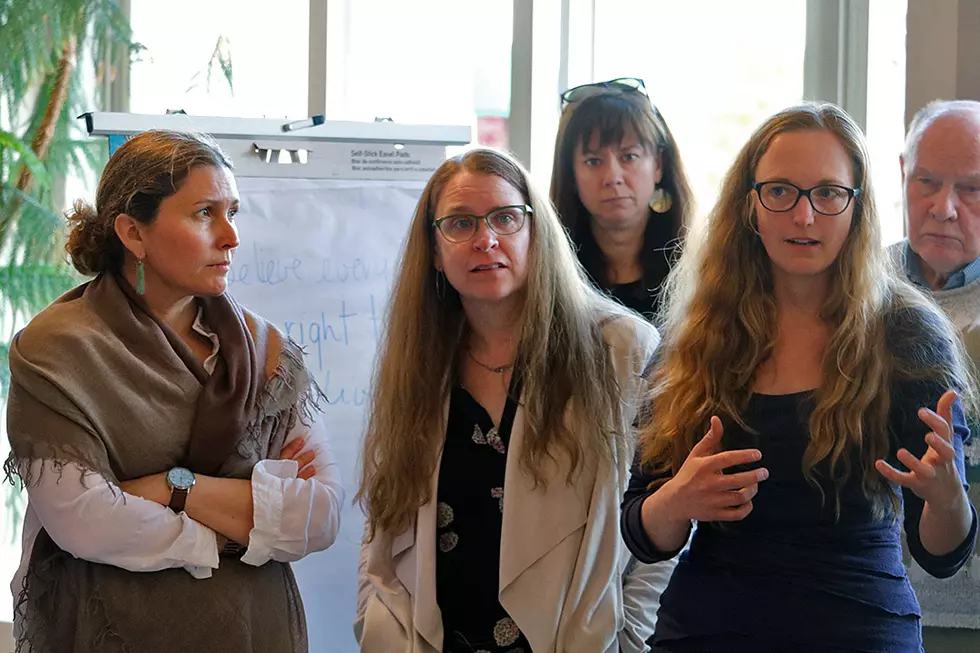
Missoula’s purchase of affordable apartment complex gains support, opposition
The Missoula City Council on Wednesday gave preliminary approval to purchase an apartment complex for $2.2 million and begin searching for a new buyer to operate the facility as affordable housing.
The agreement, pending final approval next week, would mark the second time public funding has been invested in the Bridge Apartments, which was constructed in 1997 as affordable housing.
But that window of affordability has closed and the current owner, Western Montana Mental Health, is selling the property at fair-market value. That has raised concerns that the property's 20 low-income tenants could be displaced if a private buyer steps in.
“A private entity that acquired the property for market rate would charge market rate rent,” said John Adams, a grant administrator with the city. “We do not want to go backward on affordable housing here in Missoula. We're certainly preventing homelessness for some of these vulnerable individuals.”
To keep the property as affordable, the City of Missoula offered Western the full asking price and will fund the acquisition using city revenue. The Missoula Redevelopment Agency will then cover the cost difference between the city's $2.2 million purchase price and whatever the property sells for when a new owner steps in.
An affordable housing restriction would be attached to the property when that transaction takes place, likely reducing the property's value. The city is currently searching for a potential owner-operator to take over.
“It will have to be a discounted sale to maintain this property as permanently affordable apartments,” said MRA director Ellen Buchanan. “If a purchaser cannot be found, we'll use tax increment funding to reimburse the city for the purchase. That will require a revenue bond approved by City Council.”
The city is set to close on Sept. 29, capping what's been a month's long process. The city in June said Western Montana Mental Health had bypassed its offer in favor of another buyer. In early August, however, that buyer dropped out, leaving the city in a position to move forward with its purchase.
Due diligence and appraisal work has been completed, leaving City Council approval as the final step.
“When it became available on the general market, the City of Missoula was very interested in acquiring it for purposes of making sure these folks remain housed,” said Missoula Mayor John Engen. “The city is still the best buyer to ensure that long-term use that was originally funded by public resources remains the use for that facility.”
Once the acquisition is made, the city will work to solicit a new buyer with the caveat that it maintains the property as affordable housing. The Bridge Apartments contain 20 units that are currently rented for $450 a month.
“We have had several local partners contact us and express interest, and we're working with what that model might look like,” said development director Eran Pehan. “I think the city and City Council will be in a position to consider several offers.”
While the deal enjoys the broad support of City Council, not all members are in favor of the purchase. Their concerns primarily fell upon Western Montana Mental Health's decision to sell the property at fair market value, given that it was originally built with public funding.
Jesse Ramos accused the organization of double dipping, and called it an unscrupulous move.
“It's pretty despicable what they're doing. They put us in a tough spot and difficult situation,” he said. “There's going to be double taxpayer money spent on the same building.”
Opponents to city's purchase of the apartments haven't offered solutions for the building's 20 tenants if they were displaced. Supporters, however, said allowing that to happen wasn't an option.
“I have watched this unfold for the last few months,” said council member Gwen Jones. “To have people with these issues who have this housing that's low income, so they can afford it, and have it pulled out underneath them if it's sold into the public sector, is incredibly concerning.”
